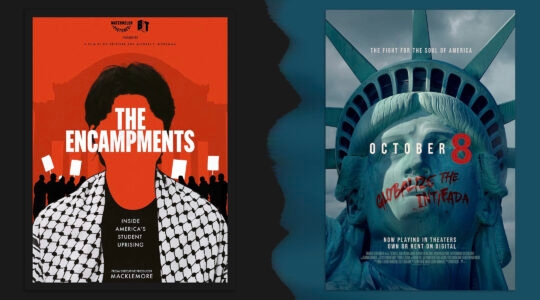There is a reason that some statements are repeated until they have all but lost their meaning. Despite their status as clichés, they are nonetheless true.
For example, the controversy swirling around Harvey Weinstein almost inevitably calls to mind Lord Acton’s famous formulation, “Power tends to corrupt. Absolute power corrupts absolutely.”
Like so many men throughout history, Weinstein took his economic and political strength as a license to abuse women, a mandate to exercise a predilection for predatory sexual behavior. Like any playground bully, he believes that his superior size and strength makes him impervious to consequences.
While the rumors of his behavior ran through the back halls of Hollywood, it is only in the past few weeks that, thanks in large part to reporting in The New York Times and The New Yorker, fueled by the courage of the women who risked almost everything to speak out, the worst of his criminal actions have finally been made public.
But for anyone who followed his professional career, the reality that Weinstein was a thug who acted capriciously, living with a sense of entitlement underpinned by the power to destroy his opponents, comes as no surprise.
In film journalism, Weinstein was often called “Harvey Scissorhands,” and was excoriated as a throwback to the worst artistic excesses of the studio era. He repeatedly acquired films — many of them excellent — which he then “improved” by re-cutting without regard for the integrity of the work, driven by his certainty that he alone knew how they should look.
While such behavior is hardly a novelty, Weinstein exercised his bought-and-paid-for right to suppress the original versions in the United States. For example, he cut 40 minutes from “Like Water for Chocolate” to the dismay of the Mexican director Alfonso Arau; the result was a commercial success, but Arau has directed in the U.S. only intermittently since.
Weinstein changed the ending of “August: Osage County” to make it more upbeat, betraying the intentions of Tracy Letts’s Pulitzer-winning play. Conversely, he decided to give the Thai film “Tears of the Black Tiger” a dark ending, in defiance of the intentions of its director, Wisit Sasanatieng. When the film was shown at Sundance to mixed negative reactions, Weinstein shelved it and, despite some highly favorable reviews it has barely been seen here.
The most infamous example of Weinstein’s artistic arrogance involved Jim Jarmusch’s revisionist Western, “Dead Man” (1995). Like most of Jarmusch’s work, the film is quirky and quixotic, a frequently hilarious but ultimately tragic vision of America-in-the-making, with stunning performances by Gary Farmer and Johnny Depp. Weinstein hated it. He demanded wholesale cuts. Jarmusch refused and, unlike many of Weinstein’s victims, he publicly defied the producer. As a result, Miramax dumped the film, playing it off in a handful of theaters before dumping it onto the home video market with almost no publicity.
Obviously, there is a world of difference between allegations of rape and sexual harassment and re-cutting someone’s motion picture.
But the impulse behind Weinstein’s sexual violations resembles the governing drive attending his aesthetic arrogance. Like a nasty, spoiled child who smashes his favorite toys in a fit of pique, Weinstein wrecked the work of many years and many hands simply because he could. Like that bratty kid, he knew that his (financial) parent-surrogates would replace the toys without comment, coddling and tacitly condoning his destructive behavior.
And Weinstein knew that nobody would say much to contradict his imperial prerogatives. His movies made money. His films have garnered 300 Oscar nominations. Until this month, almost nobody stood up to him.
It is too early to tell how this story will end. Weinstein’s disgrace has extended to both sides of the Atlantic; he has been stripped of his British CBE, his appointment to France’s Legion d’Honneur, his membership in Hollywood’s Motion Picture Academy. More significantly, he faces possible criminal charges and a tsunami of lawsuits.
But it’s not hard to see how the story began. Absolute power — or the assumption one has it — corrupts.
Absolutely.
George Robinson’s column appears monthly.
The New York Jewish Week brings you the stories behind the headlines, keeping you connected to Jewish life in New York. Help sustain the reporting you trust by donating today.




